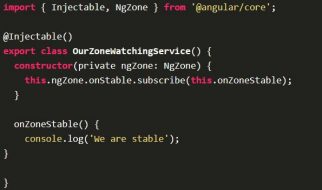Everything You Ever Wanted to Know about Writing Contests
 Image Courtesy Engin Akyurt
Image Courtesy Engin Akyurt
Everything you?ve ever wanted to know about contests and writing fees, in one handy article.
I was once in charge of gathering submissions for my local writing center?s anthology. We posted our guidelines and that we wanted to pay writers $15 per piece. A writer emailed me asking, ?How do I pay my $15 fee?? I had to explain that we were paying authors, not the other way around. The writer was surprised, probably because a lot of times these days writing feels like a pay-to-play game.
And in some ways, it is. Many popular authors have won a writing contest at some point. Others have probably paid a submission fee along the way. Many have paid to attend conferences and workshops with networking opportunities.
Writing contests abound. There are 695 contests on Duotrope?s listing of prizes and contests for poetry alone. There are writing contests run by big magazines and writing contests by little academic journals. Some contests pay a great deal, upwards of thousands of dollars, while others may pay a smaller amount. Some contests come with publication, others are a cash payout only. In some ways, this pay-to-pay model mirrors the way artists submit their work, often asked to pay a fee to be a part of an exhibition or gallery.
But I am here to tell you, contests are not the only way to get published. I?ve been a finalist and winner in several contests, but my best luck at publishing has been from places that don?t even charge a submission fee and instead focus on paying their writers. The way publications do this is by being a viable business and generating income through subscriptions and royalties.
When looking at entering a contest or submitting your work somewhere, you should always consider your goals.
What Are My Goals?
Before you submit your work anywhere, sit back and think: What are my goals with this piece? What matters about writing to you? Why are you writing? What do you want to achieve? What?s your end-game scenario?
It?s okay to be a hobby writer who just wants someone else to read your work. But you should also put a value on that work. As an editor for Interstellar Flight Press, I received a cover letter on a book submission that said something along the lines of, ?I don?t care whether you pay me, I just want to be published.? And while I had to give that writer props for knowing what matters to them, I also wondered about this little note. Our guidelines clearly state that we pay our authors, so it made me a little sad that this writer was so ready to be published that they would ignore the guidelines, as if we would somehow be more interested in their work more because they were willing to skip payment.
Editors want you to value your work because that means you?ve put the time and energy into caring about it. We want passionate authors who?ve thought through why writing matters to them. If you don?t think your writing is worth anything, neither will an editor.
Here are some things to consider:
- Do you want to get paid for your work, or just get your ideas out there?
- How much do you want to get paid? Do you want to write as a career gig, or as a way to fulfill your creative passions?
- Do you care about reaching a bigger audience? What size is that audience?
- How much money do you have to invest in your writing career?
- Is there a timeline for your goals?
- Do you mind having other people, and perhaps family members, read your work?
- How many publications would you like to have in a year? Five years?
I will say that without judgment, it?s valid to have different answers for these questions. We are all unique people and as writers, we have to know what matters to us.
Writing Contests & How They Work (Usually)
Now that we?ve gotten your goals lined up, let?s discuss the topic of this article, writing contests. As I said above, there are a lot of different types of contests out there:
- Book contests (for chapbooks, full-length manuscripts in poetry or fiction)
- Poem contests (for individual poems)
- Short story contests (for individual stories)
- Essay contests (for non-fiction)
- Local/Regional contests (for writers from a certain area)
- Identity-specific contests (for writers of color, women, etc.)
Much of the reputable contests in the writing world are run by literary journals based out of college MFA programs or writing departments. Others might be run by writing collectives, state and national governments, or conferences.
Most contests work like this: You pay a small fee to submit and that fee goes towards the contest payout. You submit your work and wait several months to hear back. Sometimes, the work is read by a judge or other times by the publication editors, or even a committee of folks. Very often slush readers are used to filter the best works up to the editors. When the contest is announced, winners are contacted and those who didn?t make the cut are rejected. Usually, these contests run yearly, although some may be one-off events.
How Genre Plays a Role
The value of entering a contest can vary based on genre. I?ve heard SFF writers rail against contests, not realizing that outside the SFF world they are often a way of gaining recognition (whether that is a good thing, I leave up to you to decide, dear reader). Also, depending on what type of book you are writing, a contest may vary in how much leverage you get out of it. Here are my thoughts on whether you should enter a contest, based on what genre you?re writing in:
Poetry
Likely the most common field for contests, magazines and journals use poetry contests to publish works that wouldn?t get picked up otherwise. They often charge a fee to submit, such as say, $5-$25, which in theory then gets put into a pool of money used to pay the contest payout (usually anywhere from $500 to $10,000, most commonly in the range of $1,000).
As an editor, I try to look at this practice realistically. It costs more to publish an experimental book of poetry because it?s harder to market. Publishers are asking themselves, who is going to buy this? The hard truth of the matter is that if you have a book of poems and you aren?t already a famous writer, it?s nearly impossible to get your book published. (Don?t believe me? Check out the bestselling books on Amazon and then look up their publisher submission guidelines. I?ll bet you the publisher isn?t open to submissions, or only accepts agented submissions. Now look up a list of agents who accept poetry. If you find one, send their name my way, because I haven?t seen any yet!)
Thus, contests. I think that these works are valuable and the contests can provide a way for publishers to fund such projects. Just because a book is unfamiliar to the reading public, doesn?t mean it?s not important. Would it be better if publishers funded these books a different way? Perhaps.
Poetry contests that publish individual poems work in a similar way. These often charge less than a manuscript submission because it?s less work to read individual poems.
Is it worth it?
IMHO, individual poem contests aren?t worth the cost. There are any number of paying, viable publications that take individual poems and pay good money for them. Unless you?re trying to publish a book, writers get less out of these contests. The exception is contests that charge a very small submission fee, as there?s less cost involved.
One way to gauge this is by cost. I have a 1% acceptance rate on Duotrope. That means I would have to submit 100 poems to get one acceptance. Now multiply that by the cost per contest entry. If each contest entry cost $20, that?s $2000. Now for a book, which might sell and gain me royalties, that might be a cost I?d consider. But for one poem? I?m more likely to submit those 100 times and earn back my imaginary contest fee.
?Literary? Short Fiction
Most short fiction contests are story contests that accept one individual story. There?s also flash fiction, micro fiction, themed contests, and anthology contests. Most reward the winners with a prize cash award and publication.
There are less short story manuscript contests than poetry contests. I think this comes from the fact that there are basically two types of poetry book: chapbooks, or shorter books, and full-length books. One reputable short story contest is the AWP Award Series, which awards $5,500 for a short story collection of 150?300 pages.
Is it worth it?
One way to gauge whether a short story contest is worth the effort is recognition. Is the contest recognizable enough to make a difference? If it?s a contest no one knows about, the win isn?t likely to make much of an impact on your writing career. It probably won?t draw an agent to your work, and it may only be a boost for your ego.
A better route for gaining recognition as a short story writer is to submit widely and often, to reputable magazines and journals, and build your career so that when you do want to consider making a short story collection, agents are interested because of the high quality of places you?ve published. (This is still quite hard to achieve, but it?s perhaps better than spending lots of money on contest fees.)
That being said, I do have a writer friend who won a Syfy channel contest and her story was turned into an animated short, which is pretty rad. However, her work is in the realm of SFF, which leads me to . . .
Science Fiction, Fantasy, and Horror
There are very few reputable SFF contests for previously unpublished books. In general, most folks in the SFF world look down on contests that charge fees as being scams (perhaps with good reason.) That being said, there are some fun contests for short fiction worth looking into that don?t charge fees to submit:
- Dream Foundry?s short story contest
- Escape Artists Flash Fiction Contests
- Jim Baen Memorial Short Story Award
- Contests run by conventions like the New England Science Fiction Association Short Story Contest
Post-Publication Awards for SFF WorksThere are very many reputable awards for previously published SFF books and short stories. However, in comparison to ?literary? awards where either the author or publisher may nominate a book, SFF awards often choose works based on nominations from industry professionals or members of an awarding organization (such as SFWA, which nominates for the Nebulas). This means that generally the author cannot submit their own book, and may present a barrier to entry for indie authors.
Below is a list of the top SFF post-publication awards in no particular order:
- World Fantasy Awards
- Hugo Awards
- Otherwise Award (Formerly James Tiptree, Jr. Award)
- Compton Crook Award
- The Philip K. Dick Award
- BSFA Awards
- Nebula Awards
- John W. Campbell Memorial/Theodore Sturgeon Awards
- Locus Awards
- Arthur C. Clarke Award
- SFPA Awards (for speculative poetry)
Is it worth it?
In general, I feel that it is not worth pursuing fee-based contests for SFF works unless they are post-publication contests. This comes down to the fact that most SFF markets pay a high rate for short fiction and thus negate the need for writers to consider contests. Also, there is such a stigma in SFF against contests that charge fees that it is very likely if you encounter a SFF contest charging a fee that it is NOT a reputable contest.
In short, if you want to be successful in SFF, it?s better to submit your work to magazines, journals, and podcasts for short fiction/poetry.
?Literary? Fiction Books
The traditional route to publishing a novel is by sending it to agents with a query letter and receiving representation, then having your agent submit the book to publishers. But contests are one way to go around this system. In ?literary? realms, contests are more common. There are two types of contests for book-length fiction projects: pre-publication and post-publication contests. Let?s break each one down:
Pre-Publication ContestsThese are contests for previously unpublished books. One example is the University of New Orleans Publishing Lab Prize, which awards $10,000 for a novel or short fiction collection.
Post-Publication ContestsIf you?ve published a book in the past year, you might consider submitting it to a post-publication contest such as the Kingsley & Kate Tufts Poetry Awards ($100,000 prize) or the National Book Award. Sometimes, these awards require submission by the publisher. There are also a lot of indie awards targeted to self-published or small press works.
Is it worth it?
If you think your book doesn?t have what a top five publisher wants, or is experimental, outside the norm, or you?re just not thrilled with the prospect of working with an agent at this stage in your writing career, a contest might be a good option for you. It?s a way to get your book in the hands of a publisher without needing an agent.
If you?ve published a book in the last year, I strongly suggest that you or your agent/publisher send it to award contests for published books. Additional recognition is key to indie book successes. These contests are a marketing tool, particularly for indie authors who may be looking for an agent. One way to judge the usefulness of a contest is to look at past winners in your category. If you think your book outshines this list, you may want to consider submitting.
Evaluating a contest
So if you really do want to enter contests, how do you tell if a contest is reputable? There are a few resources you can use to check out a contest:
- SFWA?s Writer Beware is run by Victoria Strauss and is a great resource for checking out contests. I won?t repeat the list of red flags in this article, you should just read Writer Beware.
- Look at who has won the contest in the past. Do you recognize any of the names? Are they authors you know and admire?
- Is the contest website professional? Do they list contact information? Are the guidelines clear? Who is judging the contest? Who is sponsoring the contest? What do you get if you win? (Weirdly, I?ve seen plenty of contests that don?t even list what winners receive.)
- Is the fee high? Too high? Look carefully if the fee is over $5?30.
- What rights does the contest take? Be wary of contests that ask for all rights to a work. (For more on this, read Writer Beware above!)
- If you have Duotrope, look at the contest?s page and check their submission stats. If not a lot of people are submitting to the contest, it?s probably less well-known. Also, Duotrope only lists submission opportunities with a reliable website and clear guidelines.
- Reedsy?s blog has a good listing of contests.
What It?s Like to Win a Writing Contest
I?ve participated in several writing contests. In 2019 I won the Science Fiction and Fantasy Poetry Association contest in two categories. I was a finalist for the Black Lawrence Press Black River Chapbook Competition in 2019. And I also was a finalist for the Not a Cult Stories Award for Poetry in 2020. My chapbook Glimmerglass Girl was selected by the editors of Finishing Line Press from their poetry award (although it didn?t win, they offered me publication anyway) and won the Elgin Award for best SFF chapbook in 2019.
But in the larger scheme of my writing, I don?t feel like these are my biggest achievements. I?m much prouder of say, my first pro publication, my first short story publication, seeing my work translated into other languages. Of all my publications, my contest achievements are just a part of the bigger picture. And they certainly aren?t the publications that garnered me the most money.
The best advice I can offer to writers interested in being a professional writer is to look at your career from a wider view. Submit as much as you can and to as many markets as you can. Aim high and have faith in your work. Devote yourself to writing. Getting hung up on one submission or one contest derails you from writing the next great thing. It?s very hard to judge which of your work might stand out to readers, so focus on writing the best thing you can and submitting it to the best market for your genre.
And if you don?t have money to spend on contests? Don?t sweat it. There are many free opportunities out there.
The Takeaway: You Don?t Have to Spend Money to Make Money as a Writer

Holly Lyn Walrath is a freelance editor based out of Houston, Texas. She holds a B.A. in English from The University of Texas and a Master?s in Creative Writing from the University of Denver. She provides editing services for writers and organizations of all genres, experiences, and backgrounds, but enjoys working with new writers best. Find her on Twitter or visit her website.


